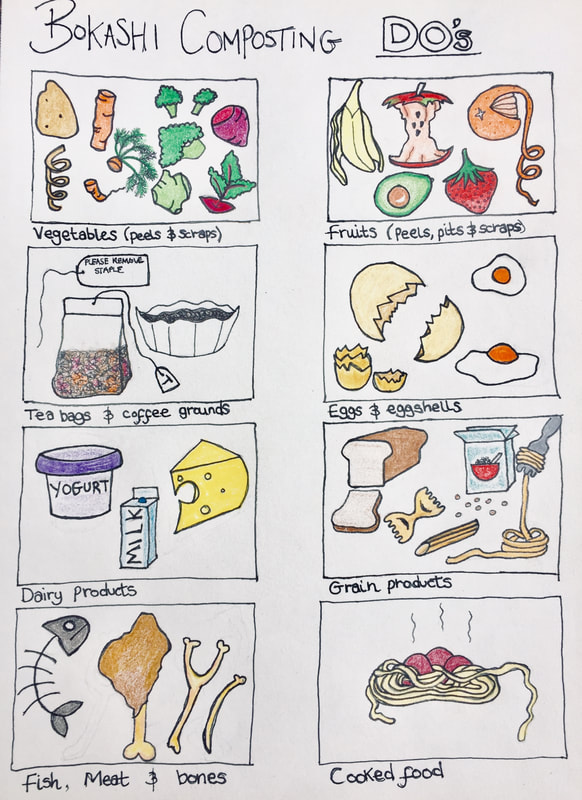What is compost?
The breaking down of organic material into smaller substances such as bacteria, fungi and microorganisms.
The nutrient rich soil created through this process can be used for landscaping, gardening or other growing purposes.
What can be composted?
If it grows, it goes! We will collect all kitchen scraps, including meat and dairy, fruit, vegetables, bread, pasta, rice, cereal, coffee grounds, tea bags, eggs, nuts and limited amounts of paper towel.
We also accept paper products such as paper towel or cups so long as they haven't been used with any cleaning or chemical products.
Please also note that liquids should be drained before adding waste to your bucket.
What cannot be composted?
Please NO pet waste, and NO inorganic items, such as plastic, metals, glass, diapers, etc.
We also ask that you don't put disinfectants, herbicides, or antibiotics in your compost.
Please NO "compostable plastics."
Please remember to remove stickers from fruit/veg as this is not good for the worms!
Please drain large volumes of liquid first e.g pour your coffee down the sink but keep the grounds for the compost bucket!
Will my compost bucket smell?
Composting can cause unpleasant smells as the waste decomposes, but when done properly this can be reduced significantly. Each bucket provided will include an air tight lid and Bokashi Bran compost accelerator. The Bokashi Bran will aid in the breakdown of waste and reduce odor. It is importantly to ensure the lid is sealed.
What happens to my food waste?
All waste will be composted and will be available for sale in spring of 2022. Small amounts in fall 2021 hopefully. We use a two stage composting process; in the first stage we use a traditional composting method to heat pile to 140-160 degrees and turning often then have a vermicomposting system to finalize the compost into worm castings which is a premium compost product as it kills majority of pathogens while containing lots of beneficial organisms and microbes.
